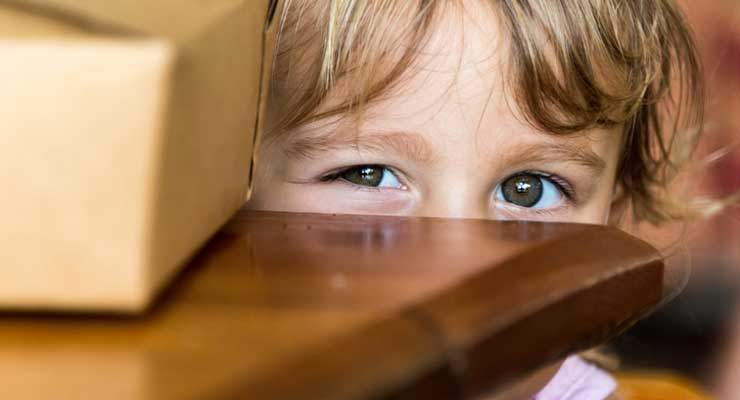Shyness is not always a bad thing. When it crosses over to a social phobia or anxiety, you might want to seek professional help. But simply being shy can be OK. It just may take shy people longer to feel comfortable with new people and new situations. Shy children tend to observe the scene before jumping in. Shyness is a personality trait, not a fault, says Dr. William Sears, author of more than 40 pediatric books.
Reasons for a Shy Child
Some people are born shy, while others become shy later on, according to the Kids Health website. You have probably witnessed shyness in a baby who hides her face from a stranger versus one who smiles and kicks her feet when a stranger approaches. Even if your child was not shy as a baby or toddler, your child can develop shyness because of school or home experiences. Often, shyness will go away after your child becomes used to her routine and makes some friends.
You May Unknowingly Be Contributing
Another reason your child may act shy could be you. If you are extroverted and domineering, you could be making your child’s shyness worse. When you are with your child in the doctor’s office, for example, and your doctor asks your child a question and you answer for your child instead of waiting and letting her say something, you could be causing your child to withdraw. A better approach is to try to become more reserved around your shy child so that your child can become more outgoing.
When Shyness is a Problem
When shyness prevents your child from going new places or meeting new people, it has become a problem and is interfering with your child’s life, according to the Kids Health website. Letting your child know that you are there for him or arranging for him to talk to a counselor can help.
How You Can Tell
It is sometimes difficult to tell when your child is merely shy or if the shyness is masking a deeper anxiety. Sears says that one way to tell if your child is merely shy versus having a serious problem is to observe if she makes eye contact with people, is polite and seems happy in general. If so, she is just a quiet person. If your child avoids eye contact and has behavioral problems, then the shyness is probably more serious. If this is the case, your child may be angry and fearful instead of happy.
What You Can Do
A problem with shyness is that it could hamper your child from developing his social skills. Your child may be retreating into a shell. As a parent, you should try to build-up your child’s self-esteem if you see this happening. But be careful that you don’t push your shy child too hard or he may recoil, warns Sears. You cannot pull a child out of being shy. Also, never label your child as “shy,” because this sounds like a negative trait. Your child may feel that something is wrong with him. Use words like “private” or “reserved” instead.





